This article was medically reviewed by Ritu Thakur, MA. Ritu Thakur is a healthcare consultant in Delhi, India, with over 10 years of experience in Ayurveda, Naturopathy, Yoga, and Holistic Care. She received her Bachelor Degree in Medicine (BAMS) in 2009 from BU University, Bhopal followed by her Master's in Health Care in 2011 from Apollo Institute of Health Care Management, Hyderabad.
There are 21 references cited in this article, which can be found at the bottom of the page.
This article has been viewed 101,046 times.
Experts agree that you can have high blood pressure without any symptoms, but the condition may still be damaging your heart and blood vessels. Blood pressure is the force your blood exerts on your artery walls as it flows through your body.If your veins narrow or stiffen, your blood pressure may be higher than normal, which can cause health problems like heart disease or stroke. Research suggests that diet and lifestyle changes may help reduce your blood pressure.[1] Additionally, talk to your doctor to find out if you need additional treatment.
Steps
Understanding High Blood Pressure
-
1Know the stages of high blood pressure. If you have blood pressure above 120/80, you have high blood pressure. The stages of high blood pressure change depending on the level of pressure in your heart.
- Blood pressures of 120-139 / 80-89 are considered prehypertension.
- Stage 1 Hypertension is 140-159 / 90-99.
- Stage 2 Hypertension is 160 or higher / 100 or higher.[2]
-
2Diagnose high blood pressure. Blood pressure varies regularly throughout the day. It is lower when you sleep and rest, and rises if you are excited, nervous, or active. For this reason, diagnosis of abnormal blood pressure is made only when elevated blood pressure is seen during at least three doctor’s visits, spaced over a period of weeks to months. Additionally, you may have isolated high blood pressure that only affects one of the two pressures measured.[3]
- Whichever number puts you into the highest stage is the diagnosis you will be given. For example, if your blood pressure is 162/79, you have Stage 2 Hypertension.
Advertisement -
3Understand essential high blood pressure. There are two categories of hypertension, essential and secondary.Essential hypertension develops gradually over many years. Causation is generally multi-factorial and it is strongly associated with several independent risk factors. Age is a major factor. The older you get, the more likely you are to develop blood pressure. This is the result of stiffening and narrowing of the arteries over time. Genetic predisposition can also play a role. Hypertension is significantly more common in those people who have parents with hypertension. Studies have shown that possibly up to 30 percent of blood pressure variation is due to genetics.
- If you are obese, have diabetes, or have dyslipidemia, you are more prone to high blood pressure. Weight gain is a major risk factor. In early disease, it is the result of increased cardiac output as your body has to work harder against increased weight. Overtime, fat and sugar metabolism is disrupted, which leads to increased blood pressure. Diabetes and dyslipidemia are also diseases of deregulation of sugar and fat metabolism, respectively.
- Those who experience a great deal of stress, or have hostile or anxious personalities, as well as those who suffer from depression, have been shown to be more prone to developing hypertension.
- Hypertension is more common and more severe in those who are black. This is thought to be the result of both environmental, socioeconomic, and genetic factors.[4]
-
4Learn about secondary hypertension. This type of high blood pressure occurs in response to an underlying condition. These factors include such things as kidney problems. Since your kidneys are in charge of regulating the composition of fluid in the blood and secreting excess water, both acute and chronic kidney disease can cause dysfunction, leading to excess fluid retention, increased blood volumes, and the development of high blood pressure.
- You can also have this kind of high blood pressure if you have adrenal gland tumors, which can secrete hormones that affect heart rate, contraction of blood vessels, and kidney function, possibly leading to an increase blood pressure.
- Other factors include thyroid problems, which cause abnormal levels of thyroid hormones and can affect heart rate and increase blood pressure. Obstructive sleep apnea puts stress on the entire respiratory and cardiovascular systems, which over time leads to hypertension.
- Certain medications, both prescription and over-the-counter, have been shown to raise blood pressure. These include certain types of oral contraceptives, NSAIDs, antidepressants, steroids, decongestants, and stimulants. This is also true for illegal use of drugs such as cocaine and methamphetamines, which can raise blood pressure significantly.[5]
- An unhealthy diet high in salt can also lead to conditions that produce high blood pressure.
Making Lifestyle Changes
-
1Test yourself. You can have high blood pressure for months to years without any symptoms, but the damage caused by hypertension can eventually lead to severe health problems and even death. Generally speaking, the health problems from high blood pressure are the result of two major health stages. First, the blood vessels in your body narrow and stiffen. Second, and as a result of this, there is a decreased blood flow to different organs and body parts such as the heart, the brain, the kidneys, the eyes, and the nerves. This can lead to severe complications and life threatening situations if left unchecked.
- You should test your blood pressure at a pharmacy or purchase your own home blood pressure monitor to see how yours fluctuates. if you think it is running high, you should see a doctor so she can monitor it.
-
2Exercise more. To help lower your blood pressure, you should incorporate more exercise into your daily routine.[6] You can try both aerobic exercises such as walking, jogging, or swimming and resistance or strength training. The American Heart Association recommends that for overall cardiovascular health, adults get at least 30 minutes of moderate intensity activity at least 5 days per week for a total of 150 minutes. You can also get at least 25 minutes of vigorous aerobic activity at least 3 days per week for a total of 75 minutes and moderate- to high-intensity muscle-strengthening activity at least 2 days per week.[7]
- If you feel that this is more than you can manage, the AHA insist that you do as much as you can to start. Any activity is better than no activity. Do your best to get as much exercise as you can. Even if it is going for a short walk, that is better than sitting on the couch.[8]
- This can have the added benefit of helping you lose weight. Both a healthy diet and exercise should result in weight loss, which can lead to significant falls in blood pressure.[9]
-
3Reduce your stress. Stress, anxiety, and depression can increase your risk of developing hypertension. Learning how to manage and cope with stress can improve both your emotional and physical health. Participating in hobbies you enjoy, meditation, and yoga are just a few possible ways to rest and relax.[10] [11]
- If you feel like you are struggling with anxiety or depression, speak to your healthcare professional.
-
4Cut down on alcohol. If you're a man, try to limit the amount of drinks you have daily to no more than 2. If you're a woman, try to limit the amount of drinks you have daily to no more than 1.
- Heavy drinkers who want to limit their alcohol intake should slowly lower intake over the course of several weeks. Heavy drinkers who suddenly cut back alcohol intake put themselves at risk to develop severe high blood pressure.[12]
-
5Quit smoking. Smoking is one of the most common and avoidable contributing factors to cardiovascular death. The chemicals in cigarettes cause an increase in heart rate and vessel constriction, which cause increased blood pressure. More importantly, cigarette smoking causes stiffening of the arteries over time, which can persist for many years after quitting.[13]
-
6Limit your caffeine intake. Caffeine causes an increase in heart rate and blood pressure, especially in those who do not consume it regularly.[14] At high doses, it can even cause irregular heart beats. The current recommendations are to consume no more than 400 mg daily.
- To figure out how much you consume a day, you need to know how much caffeine is in common things you consume. An 8 oz coffee has 100-150mg, a 1 oz espresso has 30-90 mg, and an 8 oz caffeinated tea has 40-120 mg.
-
7Use herbal remedies. Although not scientifically verified, there are several herbal remedies which are thought to help hypertension. As a rule, however, don't substitute these unverified herbal remedies for proven scientific advice. Instead, supplement your diet with them if they are approved by your healthcare provider.
- Try holly leaf extract, which is used as a tea in China and is supposed to help blood vessels enhance circulation and blood flow to the heart.
- You can also try hawthorn berry extract, which is supposed to improve the supply of blood to the heart and help to support the metabolism of the heart.[15]
- Taking garlic extract is supposed to help prevent heart disease. High blood pressure and cholesterol are also rumored to be somewhat controlled by garlic.[16]
- Hibiscus, which you can get as a supplement or drink in tea, can act like a diuretic and may have actions that mimic medications such as ACE inhibitors and hypertension medications. You can also try ginger-cardamom tea, which is used in India to naturally reduce blood pressure.
- Drinking coconut water, which contains potassium and magnesium, can help with normal muscle function.
- Taking Fish oil, which is a concentration of omega-3 fatty acids, may help with fat metabolism and reduce the risk of heart attack and stroke.[17]
Trying the DASH Diet
-
1Try the Dietary Approaches to Stop Hypertension (DASH) diet. This is a medically designed and studied diet plan focusing on reducing blood pressure. It was shown the significantly lower both numbers measured with your blood pressures. The diet is high in vegetables, fruits, low-fat dairy products, whole grains, and lean proteins. It is also low in sodium, added-sugars, and fats. [18]
- Most of the dietary advice that follows will take the DASH diet as its model. If you want to know more about the DASH diet and other dietary advice, schedule an appointment with your doctor.
-
2Limit your salt intake. Sodium can significantly affect how high your blood pressure is. A central goal of the DASH diet, then, is to lower the amount of sodium the patient gets through both table salt and foods themselves.[19]
- The current recommended daily intake of salt is set by the 2010 Dietary Guidelines for Americans at 2,300 mg.[20] If your doctor believes that you belong on a low-sodium DASH diet, you should probably consider lowering your daily salt intake to about 1,500 mg. That's less than a teaspoon of salt per day.
- Many processed foods contain high levels of sodium. Be careful of processed foods when considering how much salt your body is getting. Even processed foods that don't taste salty may have significantly more salt than is healthy. You can check the packaging on most foods to see how much sodium it has. Sodium is listed in milligrams (mg) on every nutrition label.
- Be mindful of serving sizes and track the sodium you consume each day to try to keep it below 1500 mg.[21]
-
3Put whole grains into your diet. The DASH diet consists of 6 to 8 servings of grains, preferably whole grains, per day. [22] Try to eat whole grains over refined grains. There are some smart choices you can make in order to avoid refined grains and eat the ones most healthy for you.
- Quinoa, bulgar, farrow, oats, rice, wheat berries, and barley are all good sources of whole grains.
- If you've got a choice, opt for whole grain pasta instead of regular pasta, brown rice instead of white rice, and whole wheat bread instead of white bread. Always look for labels that clearly state 100 percent whole grain or 100 percent whole wheat.
- Choose food that is as unprocessed as possible. If it comes out of a bag, a drive through, or in a box with more than 3 ingredients, it is probably too processed. If is comes out of a tree or is grown in the ground, it is more than likely healthier.
-
4Eat more vegetables. Vegetables are delicious, diverse, and very good for your blood pressure and general health. DASH recommends that you get 4 to 5 servings of vegetables per day. Squash, tomatoes, broccoli, spinach, artichokes, and carrots are good examples of vegetables that are high in fiber, potassium, and magnesium.
- These vitamins are needed by the body to keep it running and help lower high blood pressure.
-
5Incorporate fruits into your diet. Your body needs the vitamins, minerals, and antioxidants that are found in fruit. You can use fruit both as a natural treat and a substitute for refined, sugary sweets that you might want. DASH recommends that you get 4 to 5 servings of fruits per day.
- Leave on the edible peels of fruits for extra fiber and roughage. The peels of apples, kiwis, pears, and mangos can all be eaten and enjoyed along with the fruit.
-
6Eat lean protein. Adding lean protein to your diet can be helpful, but you need to make sure you limit your intake every day. DASH recommends that you get no more than 6 servings of lean protein, such as poultry breast, soy, or dairy, in a day.
- When eating lean protein, be sure to trim away any fat or skin from the meat before cooking.
- Never fry your meat. Try grilling, broiling, roasting, boiling, or poaching instead as a way to cook your meat.
- Make sure to get lots of fresh (not fried) fish in your diet. Fish such as salmon contain heart-healthy omega-3 fatty acids, which help ease high blood pressure instead of contributing to it.[23]
-
7Eat nuts, seeds, and legumes. Aside from having plenty of omega-3 fatty acids, nuts, seeds, and legumes are rich in fiber and phytochemicals. DASH recommends getting about 4 to 6 servings per week as opposed to per day.
- This restriction is because nuts, seeds, and legumes are high in calories and should be consumed in moderation.
- Eat foods such as almonds, flax seeds, walnuts, sunflower seeds, lentils, peas, and kidney beans.
-
8Cut down on the sweets you have per week. You should only have about 5 servings of sweets per week if you want to follow the DASH diet strictly. If you do have sweets, try going for low-fat or non-fat sweets such as sorbets, fruit ices, or graham crackers.
Taking Medication
-
1Recognize the need for medication. Frequently, lifestyle changes are not enough to reduce blood pressure to healthy levels. In many cases, prescription medications must be used. In this situation, the most effect anti-hypertensive regimen is a combination of both lifestyle changes and medication. Sometimes more than one type of medication is necessary. There are several types of medication that can be used as initial drug therapy.
-
2Ask you doctor about thiazide diuretics. This medication, such as chlorthalidone and hydrochlorothiazide, are believed to work initially by reducing fluid volume, and secondarily by causing the relaxation of your blood vessels. They are taken once daily.[24]
- Possible side effects of this medication include low potassium, which can lead to muscle weakness and irregular heart beat, as well as low sodium, which can lead to dizziness, vomiting, and fatigue.[25]
-
3Take calcium channel blockers. These medications, which are sometimes called amlodipine, nicardipine, nifedipine, verapamil, or diltiazem, are are potent vasodilators. They work by relaxing the muscle in the wall of your blood vessels. These are generally taken 1-3 times daily.
- Possible side effects include swelling in the lower extremities and decreased heart rate.[26]
-
4Try Angiotensin-converting enzyme (ACE) inhibitors. ACE inhibitors and Angiotensin II receptor blockers (ARBs) are types of medications that inhibit a hormone called Angiotensin II, which results in a narrowing of blood vessels. It also helps increase fluid retention. They are generally taken 1-3 times daily.[27]
- Major side effects include low blood pressure and a lower pulse, which can cause dizziness and fainting. They also cause elevated potassium, which can cause muscle weakness, irregular heart beat, and cough. Up to 20% of patients taking an ACE inhibitor will develop a dry, hacking cough, generally within 1-2 weeks of starting the medication.
- ACE inhibitors and ARBs work well for younger patients ranging from 22-51 years old.[28]
-
5Use beta blockers and alpha blockers. These medications may be used if you do not respond to other medications. These work by blocking signals from nerves and hormones in the body that cause the narrowing of blood vessels. They are taken 1-3 times daily.
- Side effects for beta blockers include cough (if one has a tendency for asthma or allergies) and shortness of breath, low blood sugar, high potassium, depression, fatigue, and sexual dysfunction.
- Side effects for alpha blockers include headache, nausea, weakness, and weight gain.
- Beta blockers work well for younger patients ranging from 22-51 years old.[29]
References
- ↑ https://www.cdc.gov/bloodpressure/about.htm
- ↑ https://my.clevelandclinic.org/health/diseases/4314-hypertension-high-blood-pressure
- ↑ http://www.uptodate.com/contents/overview-of-hypertension-in-adults
- ↑ https://www.ahajournals.org/doi/10.1161/hypertensionaha.110.163196
- ↑ https://www.ncbi.nlm.nih.gov/pmc/articles/PMC5599270/
- ↑ https://www.mayoclinic.org/diseases-conditions/high-blood-pressure/in-depth/high-blood-pressure/art-20046974
- ↑ http://www.heart.org/HEARTORG/GettingHealthy/PhysicalActivity/FitnessBasics/American-Heart-Association-Recommendations-for-Physical-Activity-in-Adults_UCM_307976_Article.jsp
- ↑ http://www.cdc.gov/physicalactivity/everyone/guidelines/index.html
- ↑ http://www.heart.org/HEARTORG/GettingHealthy/PhysicalActivity/FitnessBasics/American-Heart-Association-Recommendations-for-Physical-Activity-in-Adults_UCM_307976_Article.jsp
- ↑ https://www.mayoclinic.org/diseases-conditions/high-blood-pressure/in-depth/high-blood-pressure/art-20046974
- ↑ https://health.clevelandclinic.org/can-stress-cause-high-blood-pressure/
- ↑ http://www.mayoclinic.com/health/blood-pressure/AN00318
- ↑ https://www.aafp.org/afp/2004/1015/p1542.html
- ↑ https://www.mayoclinic.org/diseases-conditions/high-blood-pressure/in-depth/high-blood-pressure/art-20046974
- ↑ http://www.herbwisdom.com/herb-hawthorn-berry.html
- ↑ http://www.worldhealth.net/news/garlic-extract-reduces-high-blood-pressure/
- ↑ http://everydayroots.com/high-blood-pressure-remedies
- ↑ http://www.mayoclinic.com/health/dash-diet/HI00047
- ↑ https://www.mayoclinic.org/diseases-conditions/high-blood-pressure/in-depth/high-blood-pressure/art-20046974
- ↑ http://www.cdc.gov/salt/
- ↑ https://www.aafp.org/afp/2004/1015/p1542.html
- ↑ http://www.mayoclinic.com/health/dash-diet/HI00047
- ↑ http://www.mayoclinic.com/health/dash-diet/HI00047
- ↑ https://www.nhs.uk/conditions/high-blood-pressure-hypertension/treatment/
- ↑ https://www.uptodate.com/contents/use-of-thiazide-diuretics-in-patients-with-primary-essential-hypertension
- ↑ http://www.uptodate.com/contents/major-side-effects-and-safety-of-calcium-channel-blockers?source=search_result&search=calcium+channel+blockers&selectedTitle=1~150#H1
- ↑ https://www.nhs.uk/conditions/high-blood-pressure-hypertension/treatment/
- ↑ http://www.uptodate.com/contents/angiotensin-converting-enzyme-inhibitors-and-receptor-blockers-in-heart-failure-mechanisms-of-action
- ↑ https://www.ncbi.nlm.nih.gov/books/NBK532906/
About This Article
If you are concerned about managing your high blood pressure, test yourself regularly, either at home or at a pharmacy. Then, begin an aerobic exercise routine that includes running, swimming, or walking, for at least 30 minutes, 5 days a week. Try to follow a diet such as the DASH diet, which incorporates more whole grains and vegetables, while cutting out salt and sugar. If you are still struggling to manage your high blood pressure after making these lifestyle changes, ask your doctor if medication might be right for you. To learn more from our Physician co-author, such as avoiding things that increase your blood pressure, keep reading!
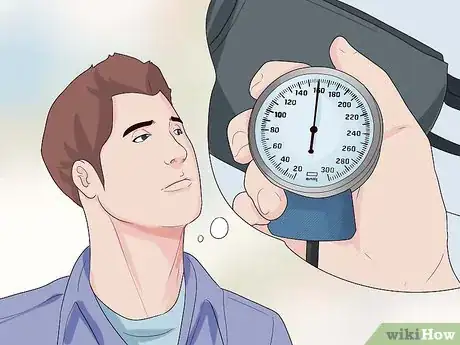
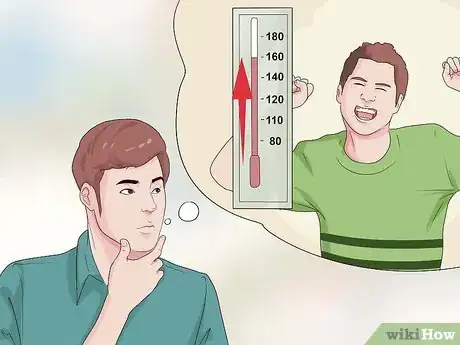
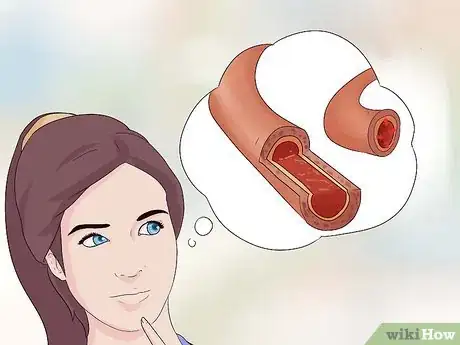
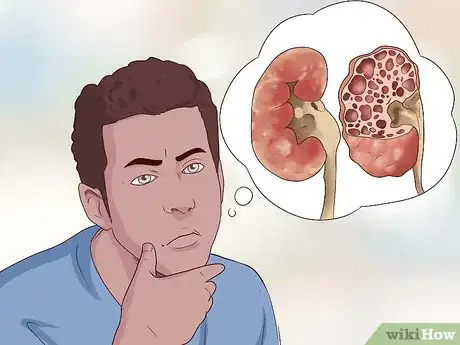
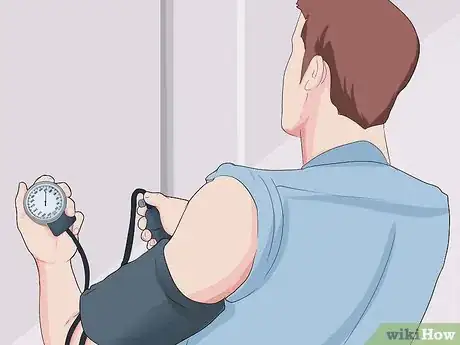
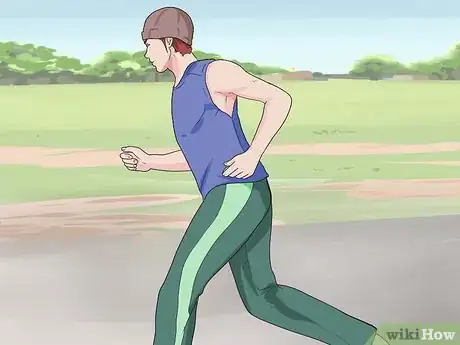
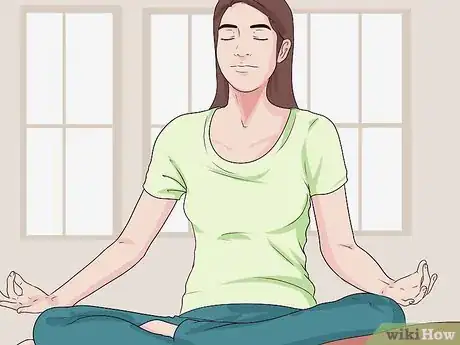
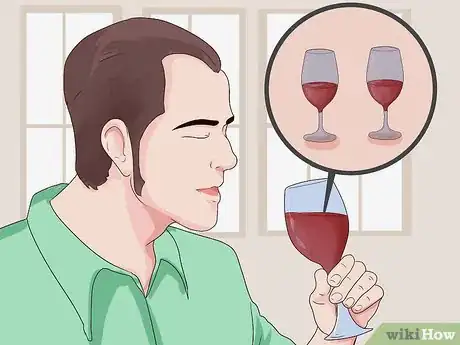
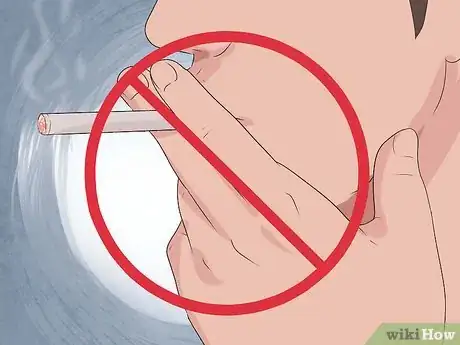
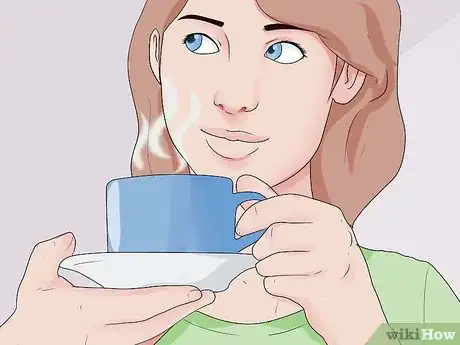
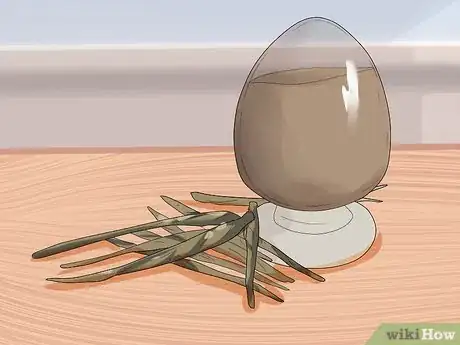
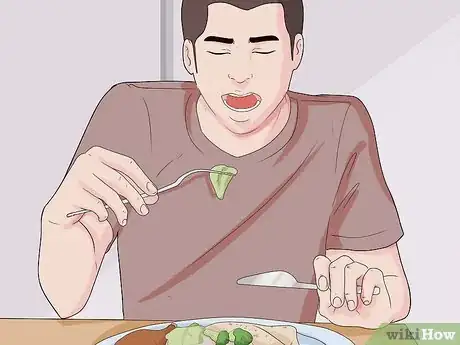
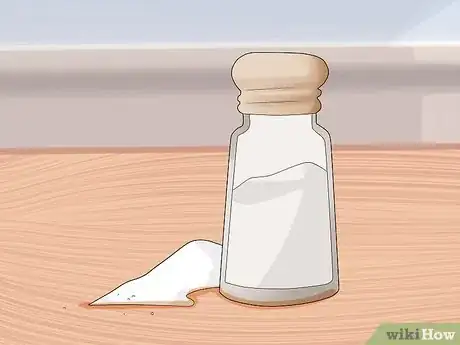
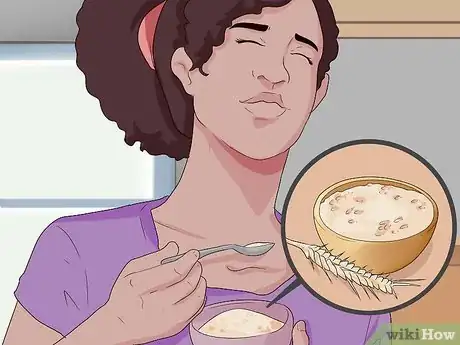
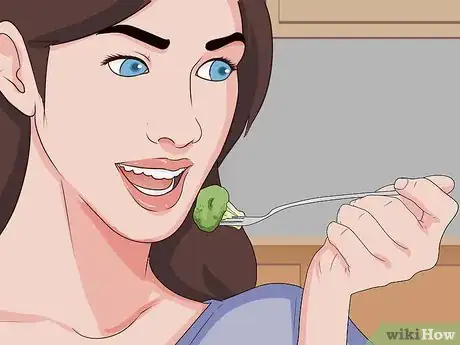

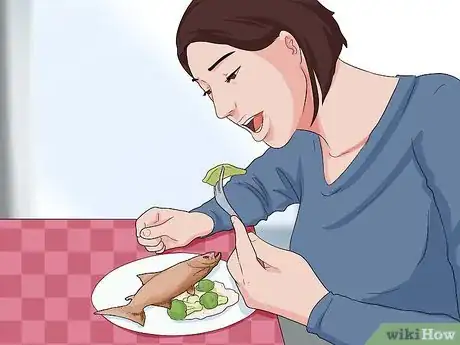
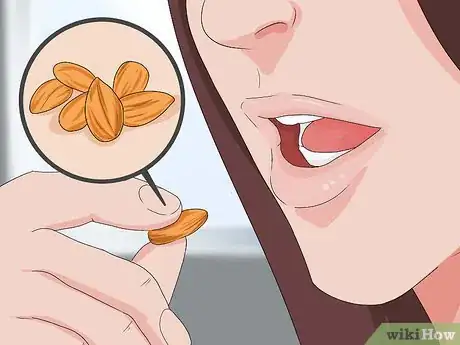
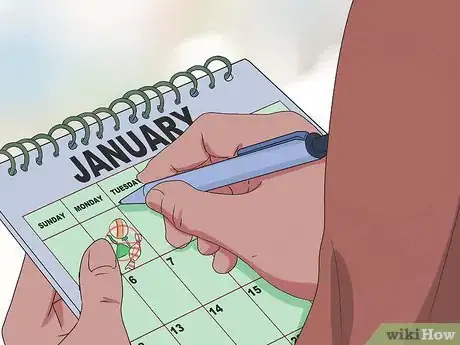
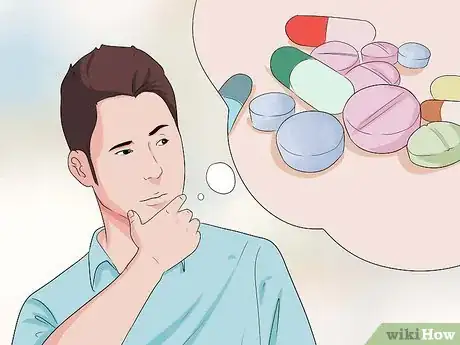
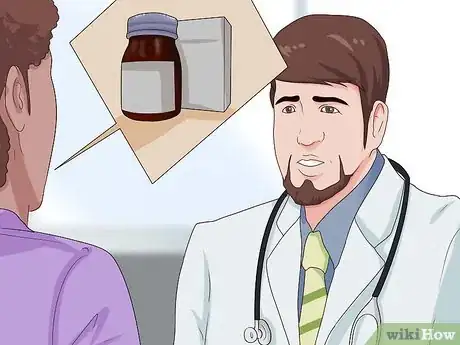
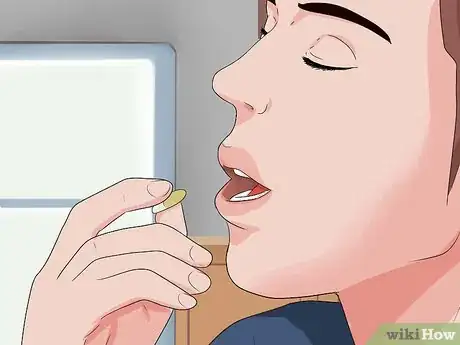
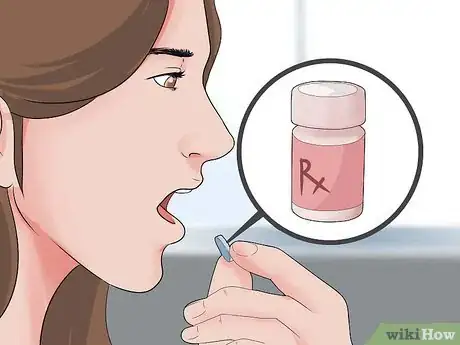
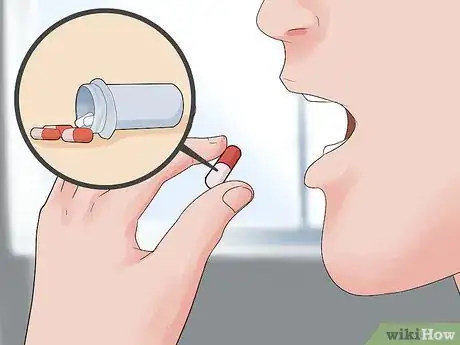

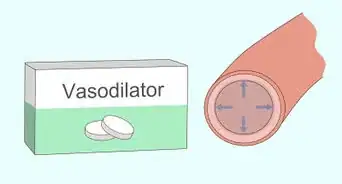
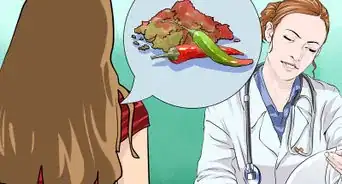

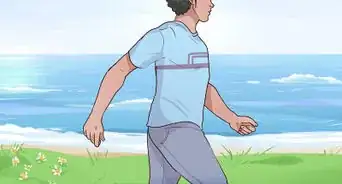
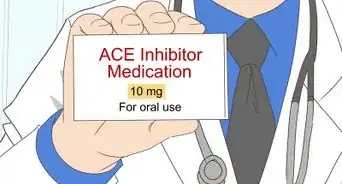
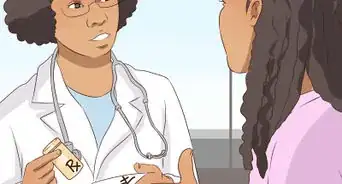
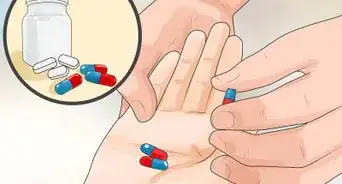
-Step-23.webp)
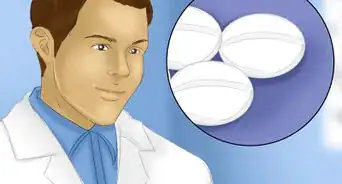









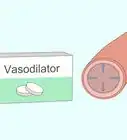
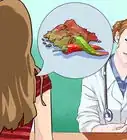





































Medical Disclaimer
The content of this article is not intended to be a substitute for professional medical advice, examination, diagnosis, or treatment. You should always contact your doctor or other qualified healthcare professional before starting, changing, or stopping any kind of health treatment.
Read More...